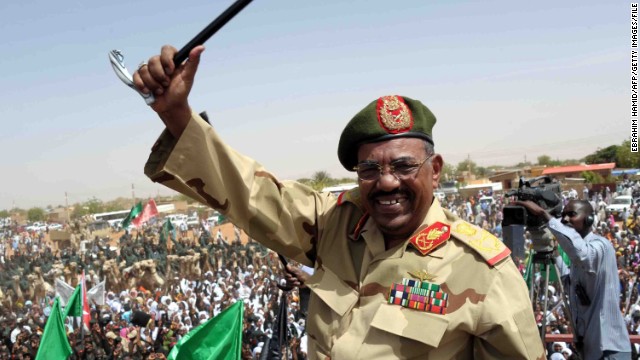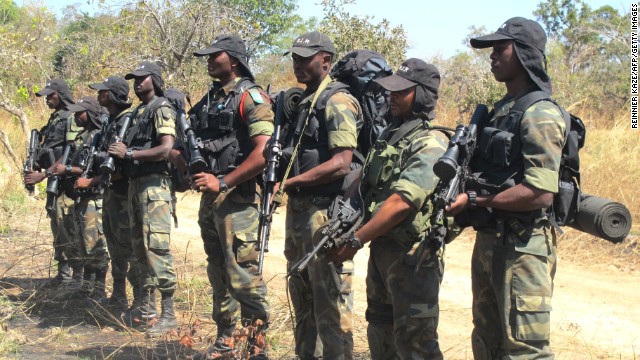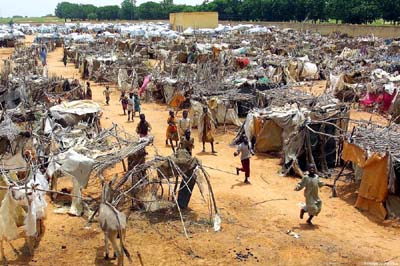Sudan is a country in North Africa, which shocked the world in the Darfur crisis. It is considered part of the Middle East politically, even though it doesn't belong there geographically. The population is recorded around 30 million people. Most tribes in the country have been Arabized and Arabic and Arab culture predominates the surrounding area.
Over 97 percent of the population of Sudan adheres to Islam, making it the dominating religion. As it happens the world's longest river the Nile, divides the country between the east and west side. The people of Sudan have a long history intertwined with Egypt, which it was united with politically over several periods.

The killing still continues to this day. Despite the fact that genocidal attacks began over a decade ago, the international community has failed to end the violence and hold Omar Bashir and his Janjaweed forces accountable.Since February 28, a new wave of bloody attacks has been unleashed against civilians in the North, South and Central Darfur by the Janjaweed militias. About 38 villages in South Darfur are reported to have been completely burned and destroyed to the ground. Constant conflicts concerning land were common practice in Sudan, but usually settled by traditional reconciliation methods. In February 2003 two rebel groups, the Sudan Liberation Army and the Justice and Equality Movement drawn from members of the Fur, Masalit, and Zaghawa ethnic groups, demanded an end to chronic economic marginalization and sought power-sharing within the Arab-ruled Sudanese state. They also sought government action to end the abuses of their rivals, Arab pastoralists who were driven onto African farmlands.

Omar al-Bashir
Gaining only negative responses, a civil war unfolded on the divided country. Several factors such as severe drought, combined with intense clashes concerning grazing, arable land and water resources also played a major role in creation of the negative sentiments on behalf of the local communities toward Sudanese government.
In 2003, after decades of neglect, drought, oppression and small-scale conflicts in Sudan's western region of Darfur, two rebel groups mounted an insurgency against Sudan's central government. In response, the regime of Sudanese President Omar al-Bashir and its allied militia, known as the Janjaweed, launched a campaign of destruction against civilians of similar ethnic background as the rebels. This campaign wiped out entire villages, destroyed food and water supplies, and systematically murdered, tortured and raped thousands of Darfuris. In September 2004, President George W. Bush declared the crisis in Darfur a "genocide". Despite the world's outcry, the violence continued and in recent years has spread to other states in Sudan.
As a result, 100,000 people fled their homes in Darfur in the first week of March, bringing the total number of newly displaced persons to 120,000 in 2014. These alarming numbers are on top of the 460,000 people displaced by violence in 2013, the highest number since the height of the genocide in 2004. The U.N. estimates that 300,000 Darfuris have died since 2003, but it hasn't bothered to estimate casualty numbers since 2008. With fighting continuing to this day, the number is likely to be far higher.

Women with children walk near a soldier of Darfur's joint U.N./African Union UNAMID peacekeeping force outside the UNAMID team site
One of the main issues which triggered the actual crisis was the government decision to arm Arab militia groups in Darfur. The government has responded to this armed and political threat by targeting the civilian populations from which the rebels were drawn. The response included ethnic manipulation in the form of a military and political partnership with Arab nomadic tribes which comprising the Janjaweed units. They were armed, trained, organized units with effective immunity for all crimes committed.
The government-Janjaweed partnership was characterized by joint attacks on civilians rather than on the rebel forces that participated in the conflict. These attacks were typically carried out by members of the Sudanese military accompanied with Janjaweed units wearing uniforms that were virtually indistinguishable from the standard army. Most of the attacks were frequently supported by the Sudanese air force, against which the civilians had no chance.

Janjaweed Soldiers
Numerous assaults have resulted in decimated small farming communities. Everything that can sustain life such as livestock, food stores, wells, blankets or clothing had been looted or destroyed. Villages were torched systematically, often not just once, but rather twice. The uncontrolled presence of Janjaweed units in the burned countryside and in abandoned villages has driven civilians into refugee camps and improvised settlements outside of the larger towns.
The violence had spread over the border to Chad with the same devastating effect. Innocent civilians died at the hands of factions, countless women and girls were raped and murdered without mercy, large numbers of men were tortured or killed, while children suffered severely from malnutrition and violence.
Finally, in July 2007 the United Nations agreed to pass Resolution 1769 which authorized the deployment of 26,000 peacekeeping forces in Darfur. The foundations for Darfur Peace Agreement were set and in 2011 it was reached in Doha. A peace agreement was signed between the two sides - the Government of Sudan and the Liberation and Justice Movement.

This agreement includes establishment of a compensation fund for victims of the Darfur conflict, allows the President of Sudan to appoint a Vice-President from Darfur and to establish a new Darfur Regional Authority as a overseer in the troubled region until a referendum can determine its permanent status within the Republic of Sudan.
No comments:
Post a Comment